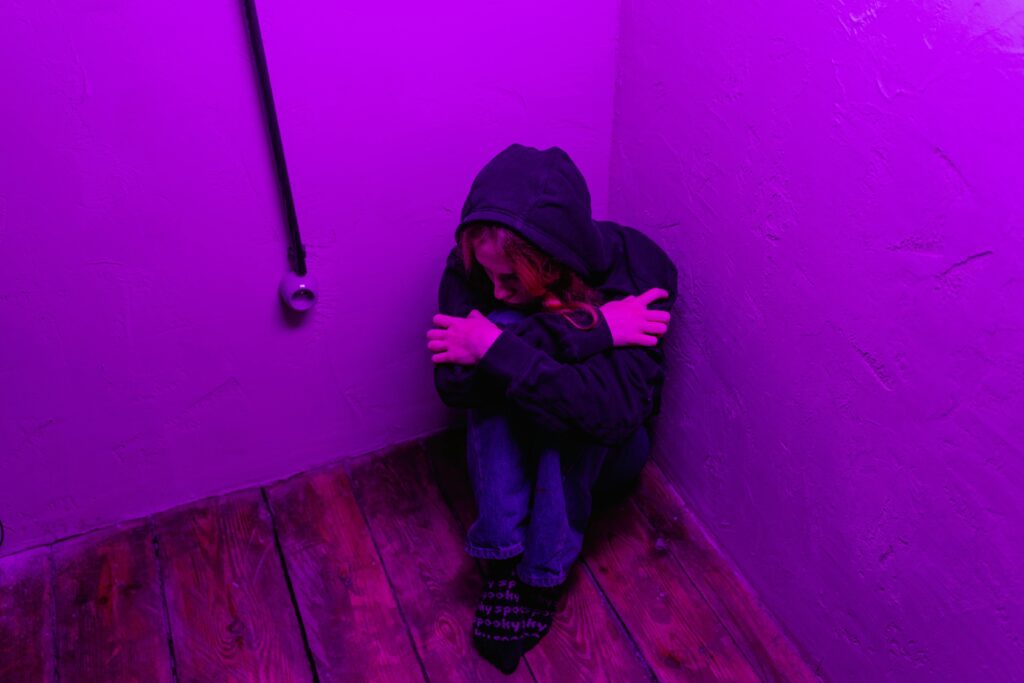
Trauma is a deeply distressing or disturbing experience that exceeds a person’s ability to cope. It can stem from a single incident, a sequence of events, or long-term exposure to adverse situations. The traumatic impact of an experience is shaped not just by what happened, but by how it affects an individual’s sense of safety, control, and emotional strength.
At Willow Springs Healing Center, we offer trauma-informed care that is both compassionate and personalized. Our specialized treatment programs are thoughtfully designed to guide individuals through their healing journey—supporting recovery and fostering lasting well-being.
Trauma manifests in various ways, each with its own unique challenges:
At Willow Springs Healing Center, we understand the profound and lasting effects trauma can have on a person’s mental, emotional, and physical health. Our mission is to provide a safe, nurturing environment where healing begins and transformation is possible.

Trauma can leave an enduring mark on every facet of a person’s life—not just mentally, but physically, emotionally, and socially. It can shape how individuals perceive themselves and the world, often influencing their core beliefs, behaviors, and relationships. In some cases, the impact is immediate. In others, it may remain buried, only to surface unexpectedly when triggered by certain experiences or stressors.
Trauma doesn’t just reside in the mind—it’s deeply embedded in the body. When someone goes through a traumatic event, their body’s stress response system is activated, flooding them with hormones like cortisol and adrenaline. While this fight-or-flight mechanism is vital for immediate survival, chronic activation can take a toll over time.
Long-term consequences may include elevated blood pressure, cardiovascular issues, digestive disorders, weakened immunity, and persistent fatigue. Many trauma survivors experience physical symptoms such as frequent headaches, muscle tension, sleep disturbances, or generalized body pain. Neurologically, trauma can alter brain function—particularly in areas responsible for memory, emotional regulation, and decision-making. As a result, individuals may experience flashbacks, disconnection (dissociation), difficulty focusing, or a sense of emotional numbness. These symptoms are real and rooted in the body’s physiological response to trauma.
Trauma often brings intense emotional turmoil. Common responses include anxiety, fear, irritability, and a heightened state of alertness (hypervigilance). In many cases, individuals develop conditions such as post-traumatic stress disorder (PTSD), depression, panic disorders, or engage in substance use to cope. Even in the absence of current danger, the brain may remain stuck in survival mode—producing intrusive thoughts, distressing dreams, or overwhelming emotional reactions.
Feelings of shame, guilt, or self-blame are also common, especially when trauma involves abuse or betrayal. Survivors may struggle with self-worth, trust, or a sense of safety, leading to emotional instability or detachment. These challenges can interfere with everyday tasks, disrupt personal growth, and diminish confidence and emotional well-being.
Trauma often affects how individuals relate to others. Survivors may withdraw from loved ones, avoid social situations, or find it difficult to build meaningful, trusting relationships. When trauma involves someone close—such as a family member or partner—trust can be especially difficult to rebuild.
This social disconnect may lead to isolation, loneliness, and a sense of being misunderstood or judged. Some individuals express their emotional pain through irritability, anger, or unpredictable behavior, which can strain relationships both personally and professionally. Within families, trauma can shift dynamics, leading to emotional distance or unhealthy dependencies. When trauma is invalidated or goes unacknowledged, it can deepen emotional wounds and perpetuate a cycle of disconnection.

Trauma doesn’t look the same for everyone—it can surface in a range of physical, emotional, cognitive, and behavioral ways. These signs are often subtle and can differ significantly from one person to the next. Understanding how trauma presents is essential for early intervention, whether you’re navigating it yourself or trying to support someone else.
Even when the mind tries to block out distress, the body may continue to hold onto it. Trauma can leave behind physical symptoms that mirror a prolonged state of stress or hyperarousal, sometimes long after the danger has passed.
Common physical indicators include:
Trauma can significantly reshape behavior, often as a means of coping. These changes are sometimes misunderstood by others as disinterest, rebellion, or emotional instability.
Common behavioral signs include:
The emotional and cognitive impact of trauma often reflects deeply rooted inner pain. These symptoms may be persistent or emerge sporadically, and they can disrupt everyday functioning.
Key psychological signs include:

Trauma is a powerful and overwhelming experience that can leave deep and lasting effects on a person’s mental, emotional, and physical health. Whether it results from a single life-altering event or prolonged exposure to distress, trauma affects individuals in deeply personal ways. Healing is not one-size-fits-all—it requires a tailored approach that combines therapy, lifestyle adjustments, and meaningful relationships to support recovery and restoration.
Professional counseling is often the foundation of effective trauma treatment. Trauma-informed therapy offers a safe, nonjudgmental space to process difficult emotions and experiences. Common evidence-based modalities include:
Therapists personalize these methods to match the client’s history, symptoms, and readiness, ensuring that treatment feels supportive, respectful, and effective.
For some, medication can play a supportive role in trauma recovery, particularly when symptoms like severe anxiety, depression, or sleep disturbances interfere with daily life. While not a substitute for therapy, medications can help stabilize emotional states, making it easier to engage in therapeutic work.
Common medications include:
Medication works best when combined with therapy, self-care, and other wellness practices.
Healthy daily routines are essential in supporting trauma recovery. Making mindful lifestyle choices can help regulate emotions, reduce stress, and build resilience over time.
Key practices include:
Connection plays a powerful role in the healing process. Supportive relationships—whether professional or personal—help reduce feelings of isolation and provide emotional grounding.
Supportive options include:
Integrative practices can enhance trauma recovery by supporting the body, mind, and spirit. While not replacements for clinical care, they can complement traditional treatments and contribute to a greater sense of well-being.
Popular holistic approaches include:

If you or someone you love is facing the challenges of trauma, know that you don’t have to go through it alone. At Willow Springs Healing Center, we offer compassionate, expert care through flexible outpatient programs at our Concord, MA location.
Our center is open 24/7, providing accessible support whenever you’re ready. Our treatment approach is designed to fit into your life—helping you heal while continuing to meet work, school, or family responsibilities. We focus not only on therapy but also on empowering clients to integrate recovery strategies into their everyday routines.
Don’t wait. Your journey to healing and lasting change can begin today. Contact us: